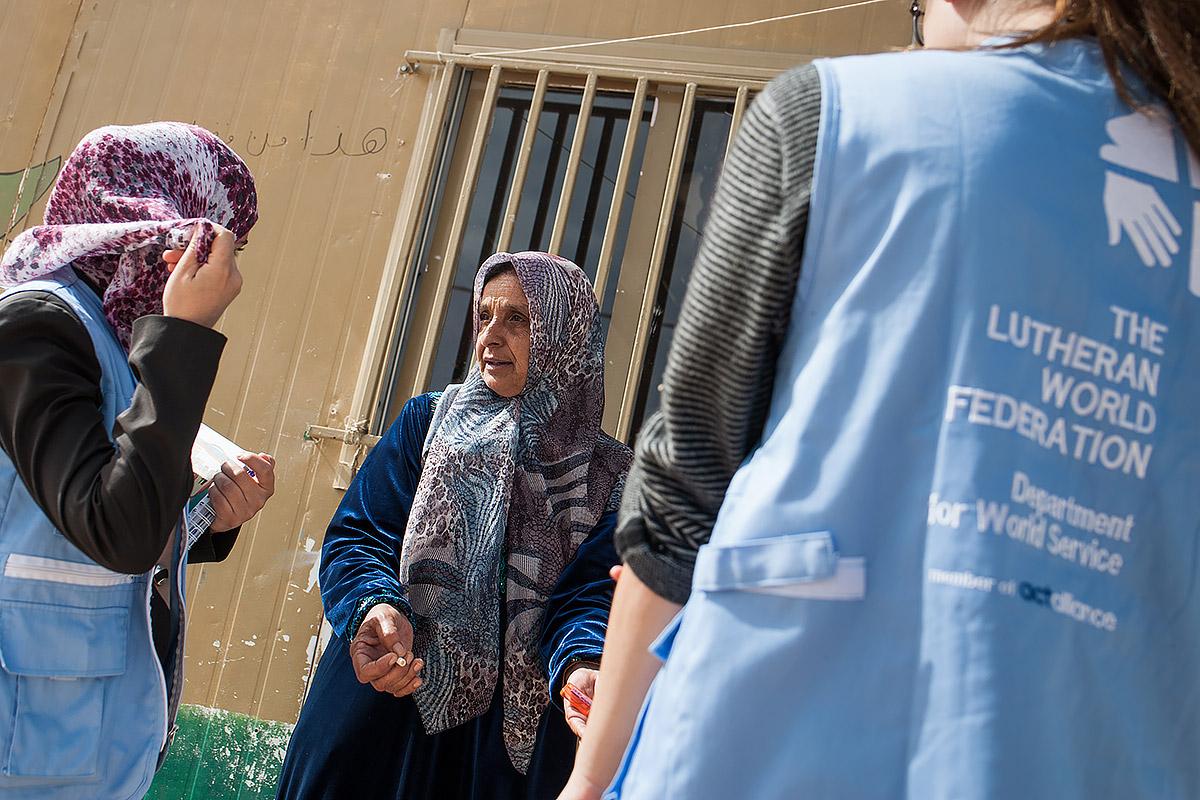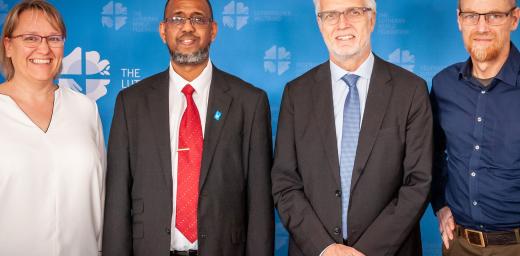Faith-sensitive humanitarian guidelines take center stage at UNHCR-NGO side event

Religion is a vital component in the lives of many refugees. New guidelines will attune humanitarian work to the needs of people of faith. Photo: Christian Jepsen, taken in Zaa'atri in January 2018
Acknowledging faith and faith identity in humanitarian action
(LWI) - A new manual on faith-sensitive humanitarian action published by the Lutheran World Federation (LWF) and Islamic Relief Worldwide (IRW) was the focus of a side event today at annual consultations held by the UN refugee agency, UNHCR, with NGOs.
A Faith-Sensitive Approach in Humanitarian Response: Guidance on Mental Health and Psychosocial Programming is designed to help humanitarian agencies to do more to attune the work they do to the faith and background of refugees and displaced people.
“Human rights are a fundamental reference point for us all; faith finds common ground with human rights in a people-centered approach, which affirms the dignity of each and every person,” said LWF General Secretary, Rev. Dr Martin Junge. “It’s our hope that this tool and our reflections on it today will help that to become more of a reality.”
It’s our hope that this tool and our reflections on it today will help that to become more of a reality.
Daniel Endres, Director of the Division of Resilience and Solutions at UNHCR, welcomed the manual as an important tool for humanitarians, regardless of their faith or ideology, at the session on faith-sensitivity in humanitarian response.
“This is a central aspect of UNHCR’s work. Faith is fundamental to the identity of refugees and those we work with,” he said. “Local faith communities enjoy special trust and are able to play a vital role in response.”
“Our pilot projects have shown that religion can be a powerful source of coping and resilience in time of emergency, but it may also be used to promote harmful practices or undermine humanitarian programming efforts,” said Naser Haghamed, Chief Executive Officer of IRW. “Our manual seeks to guide humanitarian organisations in their efforts to engage with local faith actors through the “do no harm” principle.”
Over the last two years faith-based and non-faith based agencies and academics, including LWF and IRW, have been working in partnership with UNHCR to improve learning and practice in engaging local faith actors. The Joint Learning Initiative on Faith and Local Communities, an international collaboration on evidence for the activities of faith groups, has researched the role local faith communities play in receiving and protecting forced migrants.
The manual addresses faith-sensitivity right across the spectrum of humanitarian response. Sensitivity to religious identity is not only related to the spirituality of those fleeing disasters or conflicts, or the psychological, medical and social arenas, but also affects practical aspects, such as appropriate food, shelter, meeting spaces.
“The guidance was very valuable and easy to implement in our existing field operations,” said Ann Reggie Jaj of Islamic Relief Kenya.
The manual is closely aligned with the Inter-Agency Standing Committee (IASC) Guidelines on Mental Health and Psychosocial Support in Emergency Settings and is available on the IASC website (see below).
The guidance has been developed through a diverse partnership of both faith-based and non-faith based organisations, involving the UNHCR, the International Federation of the Red Cross and Red Crescent Societies (IFRC), Church of Sweden, HIAS and World Vision alongside LWF and IRW. The aim is to ensure that emergency response truly respects the dignity of those affected by crises, by taking seriously their faith identity. It was tested in field operations in Asia and the Middle East.





